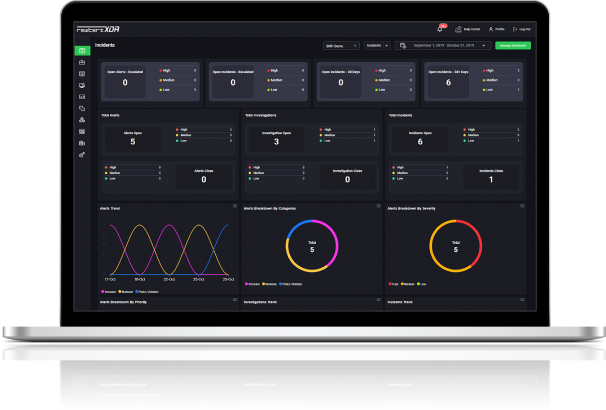

Rewterz Threat Alert – New Zero Days in Zoom Allow Session Hijack
April 2, 2020
Rewterz Threat Alert – DDG Mining Trojan and Botnet Attacking Linux Systems
April 2, 2020
Rewterz Threat Alert – New Zero Days in Zoom Allow Session Hijack
April 2, 2020
Rewterz Threat Alert – DDG Mining Trojan and Botnet Attacking Linux Systems
April 2, 2020Severity
High
Description
CVE-2012-0158 – This 8 years old remote code execution (or code injection) vulnerability in Microsoft Office is being currently exploited in a LimeRAT campaign. The bug enables an attacker to distribute read-only excel sheets to target victims with LimeRAT via malspam, in which they make use of a default password which excel first uses to decrypt contents of a file. When the hard-coded password is used, contents are decrypted in the background and users won’t be asked for a password. Malicious code will be executed without warning the user while the file appears benign in the read-only format.
Analysis Summary
A fresh campaign using Excel files to spread LimeRAT malware is found making use of the hardcoded, VelvetSweatshop default password for encrypted files. LimeRAT is a full-featured remote access tool/backdoor that can allow attackers to access an infected system and install a range of malware strains, like ransomware, cryptominers, keyloggers or botnet clients.
The new attackdeviates from conventional macro-based malware deliveryvia malspam. It sends malicious, encrypted Excel files using “read-only” mode so that users who are already aware of ‘enable-macros attack’ can be tricked into believing that there are no hidden macros in the file. The campaign makes use of the vulnerability leveraging the fact that to decrypt any given encrypted Excel file, Excel first tries to use an embedded, default password, “VelvetSweatshop,” to decrypt and open the file. At the same time, it keeps the file in read-only mode. Users are only required to enter a password when excel fails to decrypt a file with this default password. While this password is being used, in read-only mode, the app will thus eliminate the user interaction of providing a password. Using this encryption technique, attackers can bypass detection as well as suspicion by the user who will open the read-only file and macros will be executed without a warning.
Additionally, a blend of other techniques was also used in an attempt to fool anti-malware systems by encrypting the content of the spreadsheet hence hiding the exploit and payload. The hardcoded password is a well-known issue addressed in 2012 (CVE-2012-0158). Any type of malware is a good candidate for delivery using this new technique.
Impact
- Unauthorized Remote Access
- Detection Evasion
Remediation
- Do not download attachments from untrusted emails.
- Apart from macro-containing files, be wary of read-only files coming from untrusted sources as well.
- Keep endpoint security systems updated to bolster detection of malware loading or running on the host.








